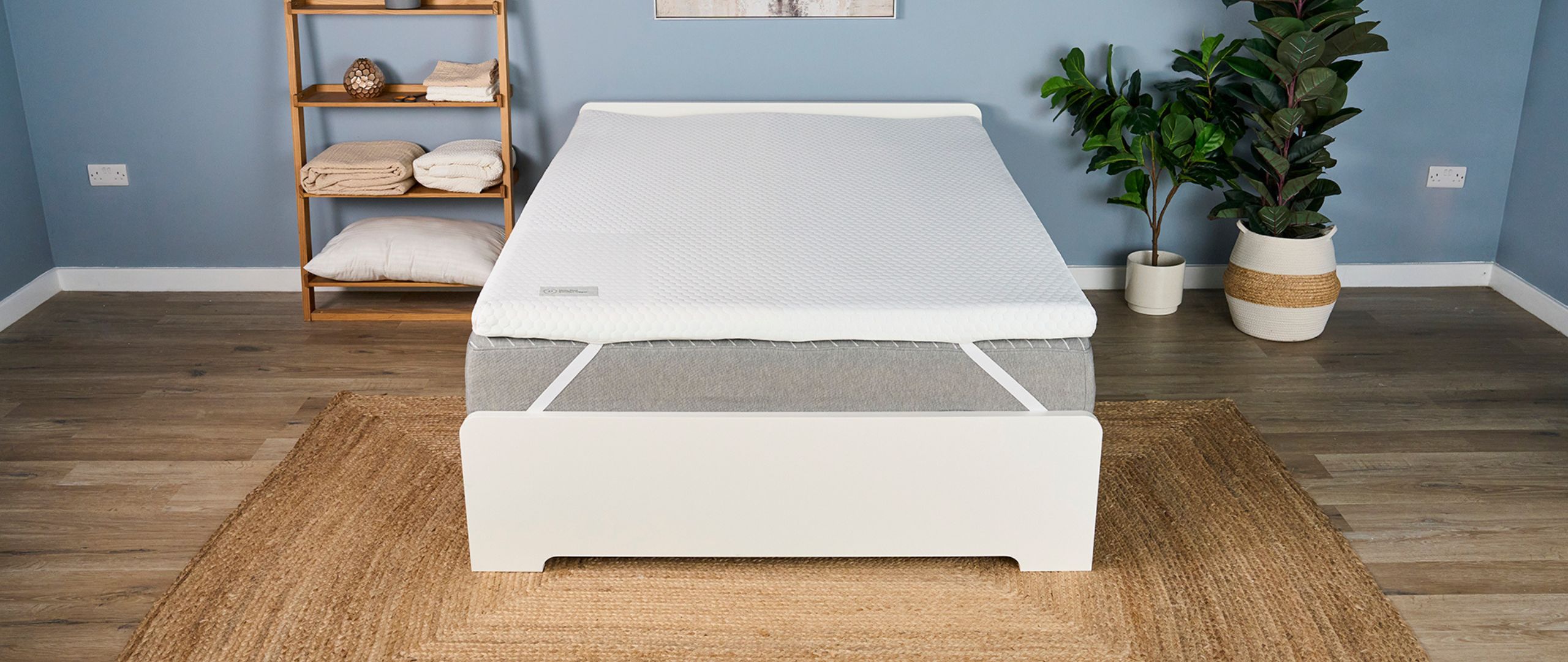Can’t sleep after a nightmare? Here are 5 tricks that work for me
Fall back asleep fast with these 5 tried and tested methods
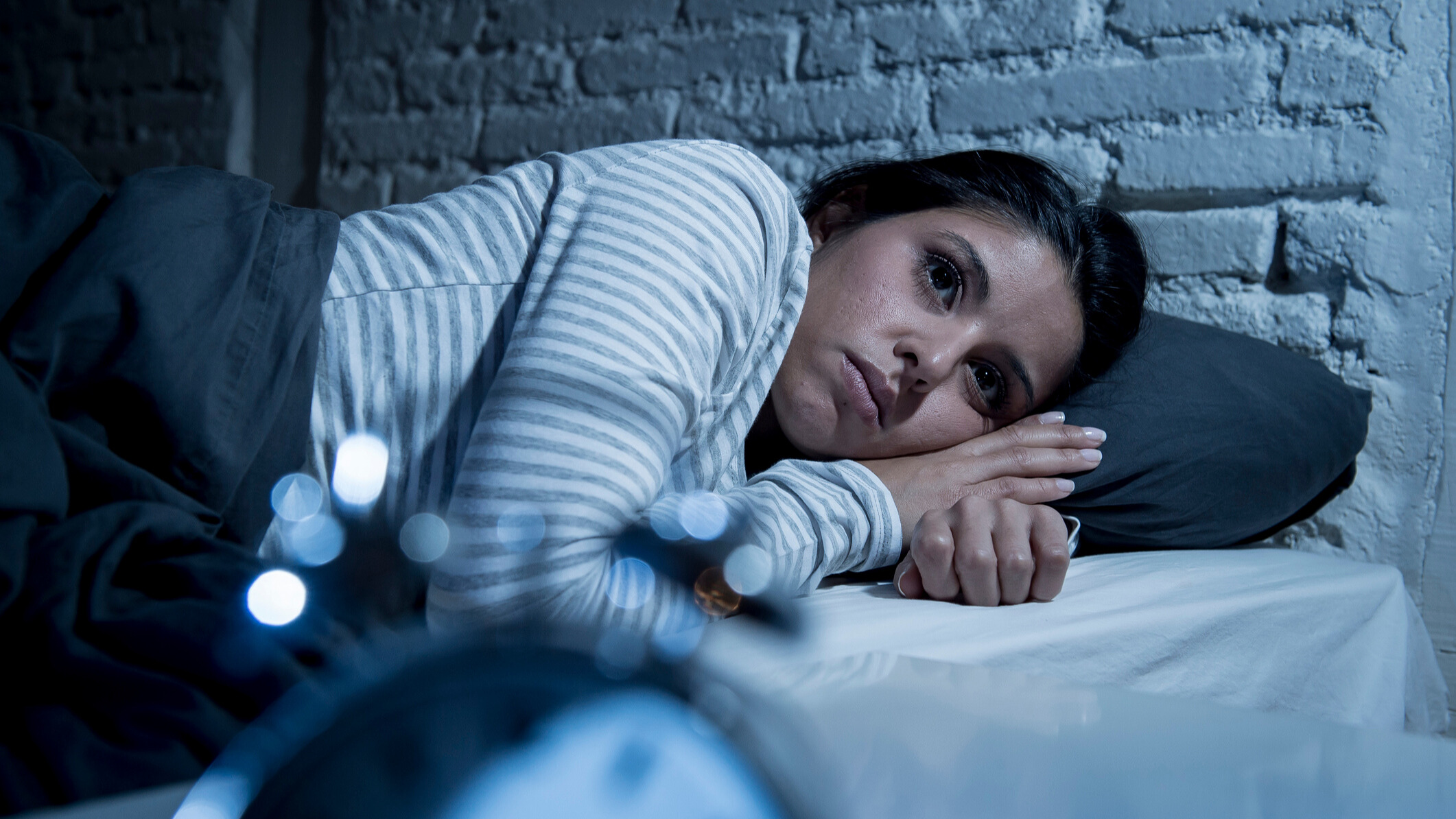
We might associate nightmares with young children, but actually most adults experience nightmares from time to time, and up to 8% of adults experience them weekly.
I'm someone who finds it incredibly difficult to fall back asleep after a nightmare because of how shaken I feel. Sometimes, I even stay awake until sunrise replaying the nightmare, unable to calm my mind. Short term, this can make for some pretty tricky days battling fatigue. But long term, it could be a recipe for sleep deprivation and even more night disturbances.
However, I've been trying some specific methods that make it easier to fall asleep after a nightmare, and they've been working. I'm sharing these 5 tricks and my experience with them in the hopes that they will help you keep a stress-free and relaxed mind, even if you're still experiencing nightmares. I've also shared some top tips to prevent nightmares, too.
What causes nightmares?
Nightmares are quite unpredictable, but they’re at most times not random. They may be heavily influenced by the personal or professional events in your life or even a highly impactful scene from a movie you watched before bed.
One important way to keep a check on your sleep disruption caused due to nightmares is to track down what triggers it. Here are common causes of a nightmare:
- Intense stress or anxiety
- A sudden change like moving house or starting a new job
- A scary movie or book
- A traumatic life experience
- Consuming alcohol
Consider keeping a journal to see if there's anything in your diet or lifestyle that may be causing these dreams. Even having caffeine too late in the day can play a part.
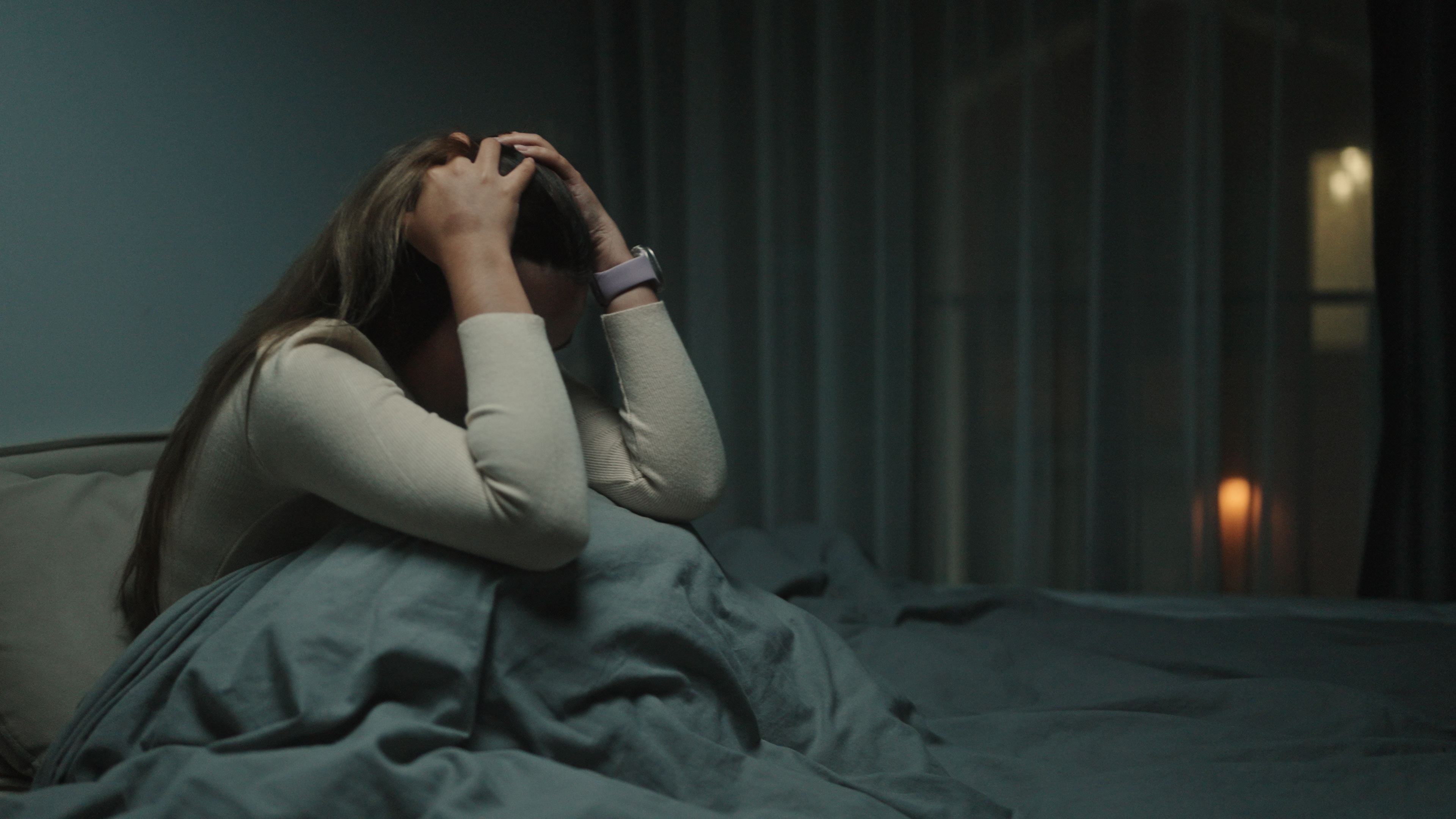
5 ways to fall asleep after waking up from a nightmare
Relaxing your mind and body is the first step to falling asleep after a nightmare. This is how you can do that:
Get instant access to breaking news, the hottest reviews, great deals and helpful tips.
1. Try breathing techniques
When you wake up from a nightmare, it's likely you'll feel your heart racing. Because of this, you may feel stressed, scared or anxious, making it difficult to naturally drift back off to sleep. Instead the first thing I do is to breath deeply through my nose and exhale loudly through my mouth, making a 'whooshing' sound. I repeat this until I feel my heart, body and mind have calmed down.
You can also try other breathing techniques like the 4-7-8 method, belly breathing or moon breathing which will bring your racing heart down to a normal pace. Alongside this, counting your breaths offers a welcome distraction from any unpleasant memories of the nightmare you still have.
2. Get up and have some water
Forcing yourself to go back to sleeping after waking up from a nightmare is counter-productive, and it will likely end in more stress and frustration. Instead, I like to get up and move to another room for a calming activity like reading.
For those like me who wake up with a dry throat after a nightmare, getting a glass of water from the kitchen can be a welcome relief. It can also help regulate your body temperature too, cooling you down if you were overheating or sweating during sleep.
Moving from your bed helps you keep the association that your bed and bedroom are for sleeping in, not for lying awake or stressful situations. This means that once you return in a calmer mindset, you will have reset your association, making it easier to fall back asleep.
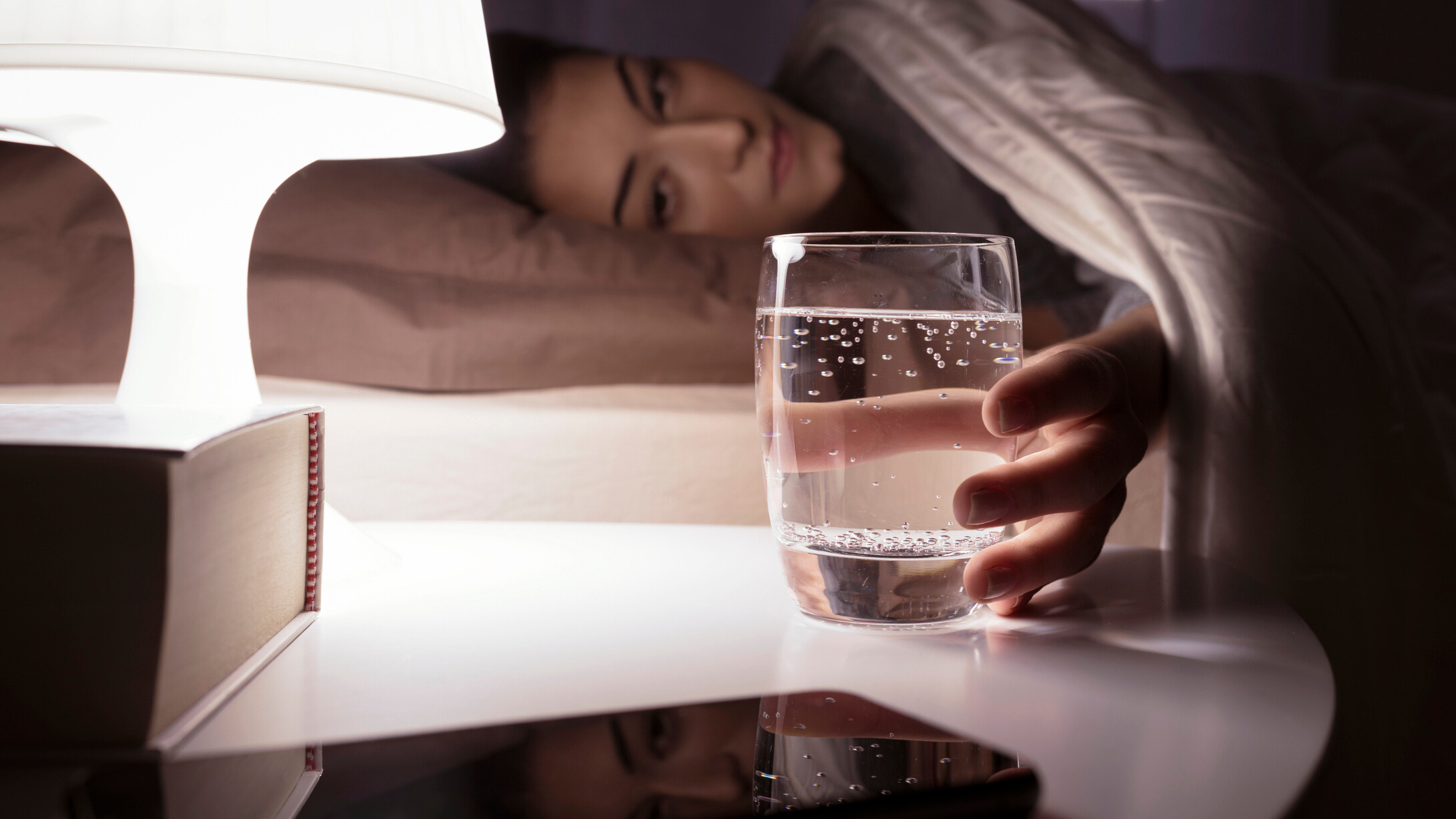
3. Turn on a night light
Waking up to a pitch dark room after a terrifying nightmare is scary for even the toughest adults. Having a night light next your bed is a useful way to distance yourself from the dream and start to relax, particularly after more shocking nightmares.
This will induce a sense of safety and security, especially if you sleep alone. However, make sure that these are not bright or shine in any stimulating colors as these are known to adversely impact your sleep quality.
I personally prefer warm fairy lights as they aren't as bright as a desk lamp and they add a calming aesthetic to your bedroom too.
4. Avoid screens
It is really tempting to reach out to your phone and check the time when you wake up from a nightmare, or even have a quick scroll to distract yourself from the fear.
However, this will only stimulate your brain further, making it even more difficult to wind down into a calm mindset ready for sleep. You can also get caught in the trap of simply scrolling and before you know it, you're alarm will be going of. This can lead to sleep deprivation which comes with its own symptoms like daytime fatigue, restlessness, mood swings and even headaches.
Once I dropped this phone habit, I was able to fall asleep much faster after any nighttime wakings. This also helped me feel more rested in the morning, which can reduce your risk of nightmares the next night.
5. Try the visualization method
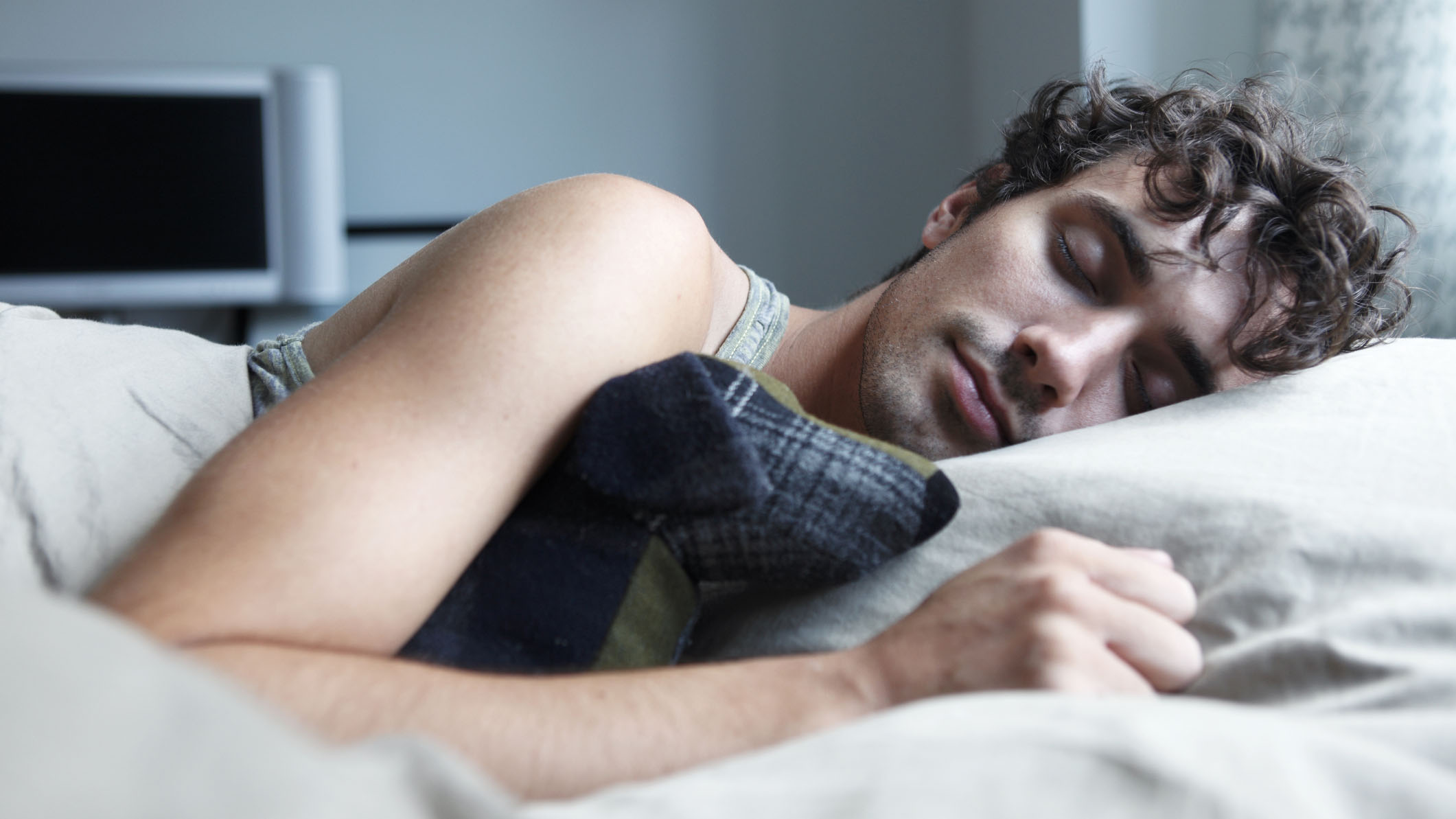
Reimagining yourself to be in your happy place, be it a beach holiday or just at home with your loved ones is the best way to calm yourself down and drift back into a restful sleep. If you find this difficult, try the sleep visualization technique.
This is essentially guided imagery linked to meditation and hypnosis where you envision yourself in calming scenarios that help your mind and body relax. If you struggle to keep your mind focused, you can try guided imagery videos with a soothing voice that will help you stay in your happy place. I've figured that the cognitive shuffling method also works wonders for me.
Three ways to avoid nightmares
While it’s nearly impossible to avoid nightmares as they are unpredictable, you could minimize the frequency by prioritizing your sleep health:
Implement a nighttime routine
It's important to give your mind, body and brain enough time to winddown and relax at the end of a day in preparation to go to sleep During this time, you can create a nighttime routine full of relaxing activities like light reading, listening to gentle music or meditation.
Taking a warm shower or bath or whipping up a bedtime drink also aids the process. It's also good to have a lighter meal for dinner earlier in the evening to avoid indigestion or heartburn which can also contribute to nighttime disturbances.
Create a conducive sleep environment
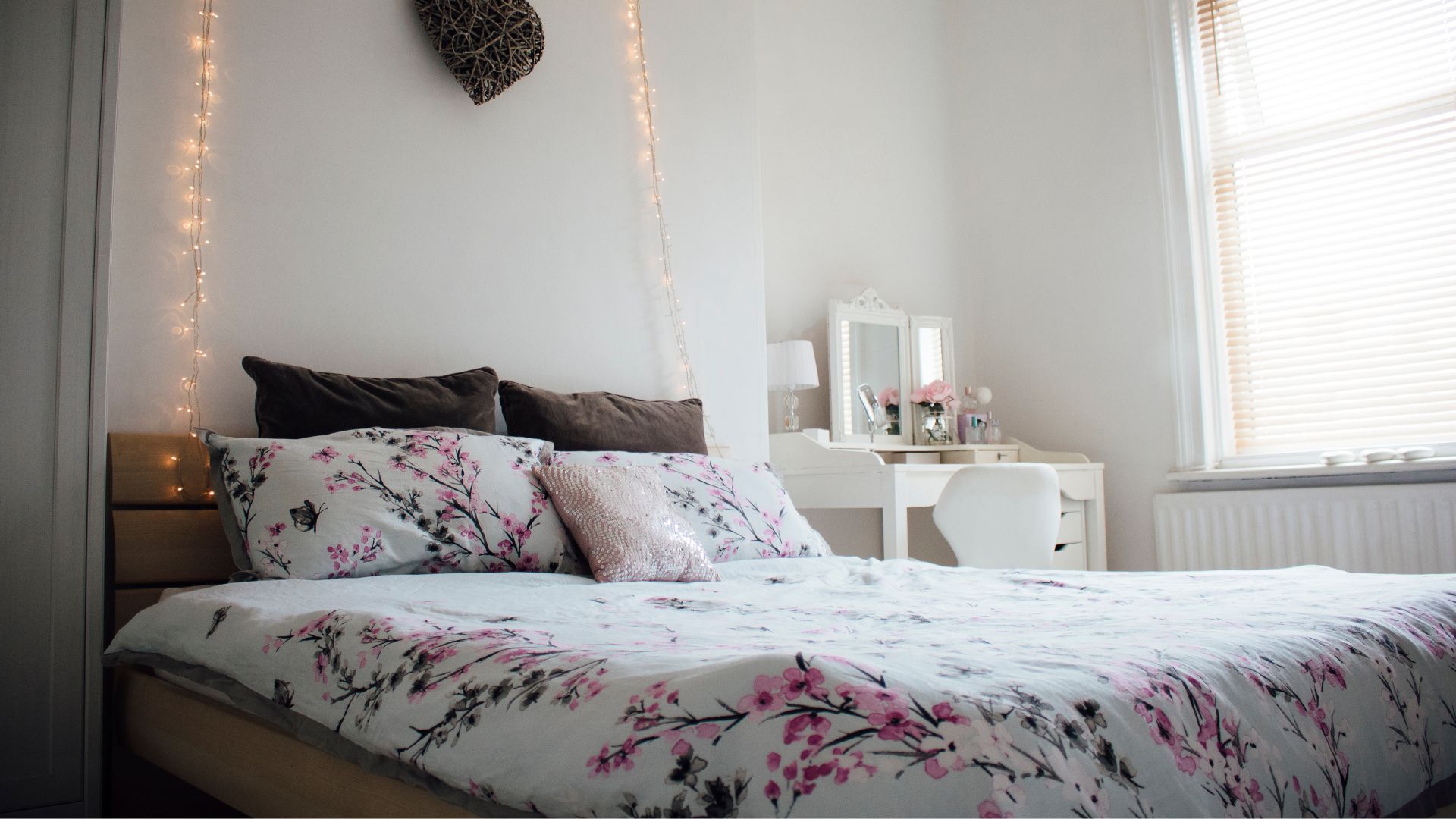
A comfortable and calm sleep environment can do wonders for our sleep. Without tossing and turning or rearranging duvets and pillows, you're more likely to experience undisturbed, deep sleep.
Invest in the best mattress for your body type to ensure you're supported throughout the night, and add in the best pillow for your sleep position to help keep you comfortable.
You can also include a quick tidy into your nighttime routine so you're bedroom is free from clutter. This helps alleviate stress and anxiety.
Talk about it
Can't stop thinking about it? I've found that talking about my nightmares the next day to my close ones has helped me process them and get them out of my mind. Keeping a dream journal too serves the same purpose. Go into as much detail as possible as this prevents you from overanalyzing your nightmares the next day, which can only lead to more stress and worry.
If you experience nightmares frequently and they are affecting your day-to-day life, it's worth talking to a professional to check if there are any underlying mental or physical health conditions that might be impacting your REM sleep.

Becky is a Sleep Staff Writer at Tom’s Guide covering all things sleep-related including product reviews, research studies, news and explainers. She works on specialist bedding content and is responsible for buyer’s guides like the best pillows for all sleepers and best mattress protectors focusing on popular brands such as Tempur-Pedic, Avocado, Coop Home Goods and more. Becky is a PPA accredited journalist who is keen to explore the intricacies of sleep, its effects on skincare, mental wellbeing and work performance. While not thinking of sleep, she can be seen reading in cosy bookshops or learning about global food culture.
You must confirm your public display name before commenting
Please logout and then login again, you will then be prompted to enter your display name.
